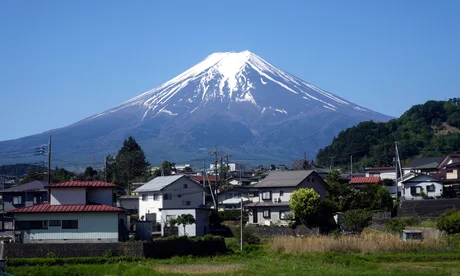Japan’s weather agency said that the country’s Mount Fuji remained snowless on Tuesday, marking the latest date that its slopes have been bare since records began 130 years ago.
The volcano’s snowcap begins forming on 2 October on average, and last year snow was first detected there on 5 October. But because of warm weather, this year no snowfall had yet been observed on Japan’s highest mountain, said Yutaka Katsuta, a forecaster at Kofu Local Meteorological Office.
That marked the latest date since comparative data became available in 1894, he said, beating the previous record of 26 October – which had been recorded twice, in 1955 and 2016.
“Temperatures were high this summer, and these high temperatures continued into September, deterring cold air” which brings snow, Katsuta told the AFP news agency.
Read also: Report: Planet-heating pollutants in atmosphere hit record levels in 2023
He said climate change might have a degree of impact on the delay in the snowcap’s formation. Japan’s summer this year was the joint hottest on record – equalling the level seen in 2023 – as extreme heatwaves fuelled by climate change engulfed many parts of the globe.
Mount Fuji is covered in snow for most of the year, but during the July-September hiking season more than 220,000 visitors trudge up its steep, rocky slopes. Many climb through the night to see the sunrise from the 3,776-metre summit.
Fewer climbers tackled Mount Fuji this year, however, after Japanese authorities introduced an entry fee and a daily cap on numbers to fight overtourism.
The symmetrical mountain has been immortalised in countless artworks, including Hokusai’s “Great Wave”.
It last erupted about 300 years ago.
Story was adapted from the Guardian.
